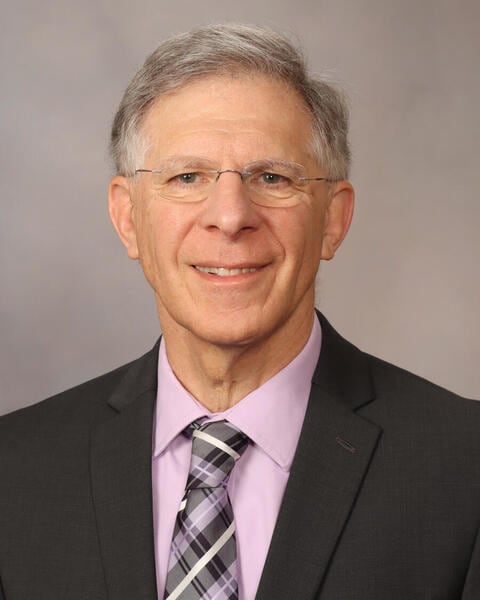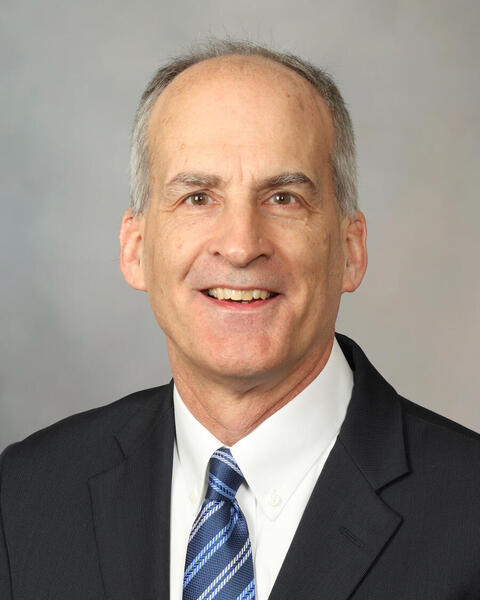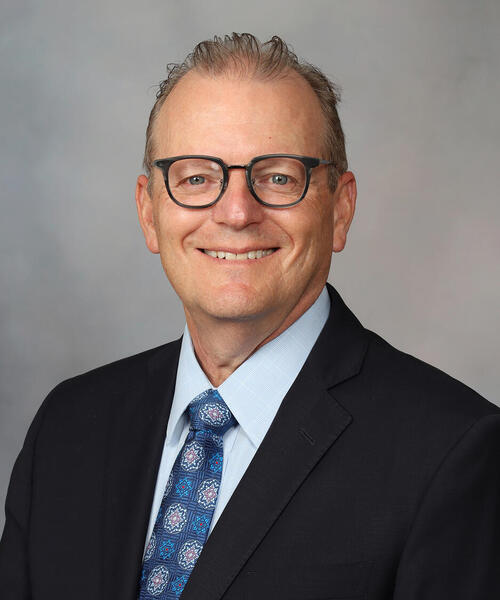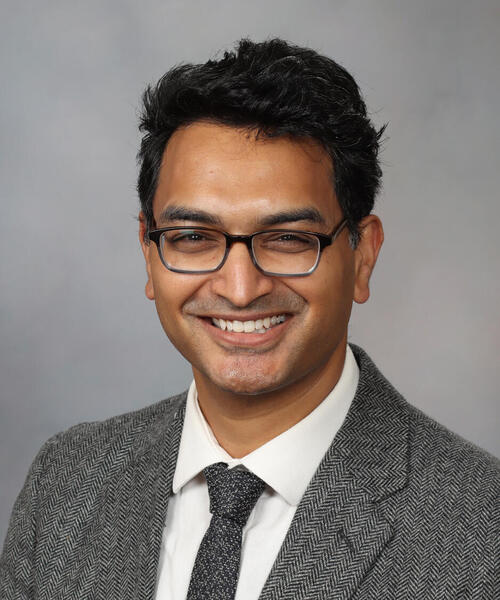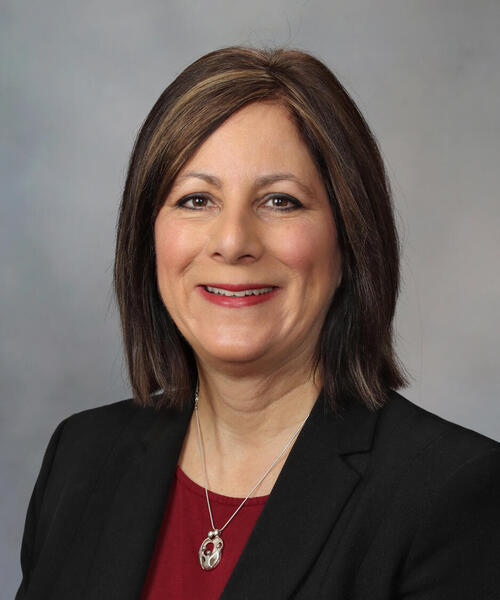Mayo Clinic Talks: Sleep Medicine Edition Online CME Course
Access to this online streaming course is available from the date of purchase until the course expires on April 18, 2026. Credit must be claimed within that time period.
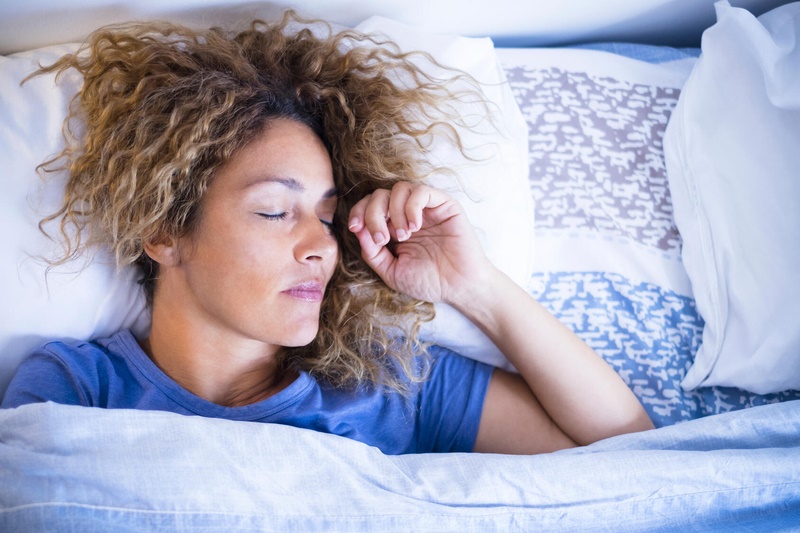
 |
Listen for free. To earn credit, click the blue register button above.
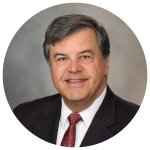 | Darryl Chutka, M.D., Course Director and Host |
The podcast episodes in Mayo Clinic Talks: Sleep Medicine Edition contain podcast interviews about Sleep Medicine and specifically the presentation, diagnosis and management of a range of common sleep disorders. Episode topics include: The Sleepy Patient; Alternate Approaches to Obstructive Sleep Apnea; Sleep Disordered Breathing and Vascular Disease; Medications for Insomnia; Behavioral Techniques for Insomnia; Treatments for Restless Legs Syndrome; and Violent dreams, Sleep Walking and Other Strange Nighttime Events.
To listen to additional episodes with CME credit available, visit Mayo Clinic Talks Season 3
Target Audience
Mayo Clinic Talks is a podcast series targeted to the primary care clinician community including Allied Health Professionals, physicians, nurses, nurse practitioners, physician assistants, and resident fellows.
Learning Objectives
Utilization of this Mayo Clinic online (enduring materials) course does not indicate nor guarantee competence or proficiency in the performance of any procedures which may be in this course.
Upon completion of this activity, participants should be able to:
- Identify novel approaches to treating obstructive sleep apnea, their indications and effectiveness.
- Describe the relationship between sleep apnea and vascular disease
- Describe simple and effective behavioral techniques for the treatment of chronic insomnia
- Discuss appropriate first-line management for patients with restless legs syndrome
- Recognize novel pharmacologic therapies for insomnia and daytime sleepiness
- Differentiate between different causes and management of active and violent behaviors at night in patients of different ages
Attendance at any Mayo Clinic course does not indicate or guarantee competence or proficiency in the skills, knowledge or performance of any care or procedure(s) which may be discussed or taught in this course.
Additional Information
| Attachment | Size |
|---|---|
| 114.69 KB |
Course Director and Host: Darryl S. Chutka, M.D.; @ChutkaMD | |||||
| Episode 1: The Sleepy or Fatigued Patient Depending on the patient, a complaint of feeling tired, fatigued or sleepy may all mean the same thing. In others they may not feel that sleepiness is the same as fatigue or tiredness. Once we sort out what the patient is actually describing, how do we evaluate the sleepy patient? How much sleep do we need per night and what’s an inadequate amount of sleep? How do we evaluate the quality of a patient’s sleep and what role does age play in the evaluation of a patient’s sleep? These are questions we’ll discuss with our guest for this podcast, Michael H. Silber, M.B., Ch.B., a neurologist and sleep expert at the Mayo Clinic. Listen to this episode on your favorite podcast app below.
| ||||
| Episode 2: The Patient who Cannot Use CPAP: Alternate Approaches to Obstructive Sleep Apnea It’s estimated that about 30 million people in the U.S. have sleep apnea and the worldwide prevalence is approaching 1 billion. The traditional treatment is continuous positive airway pressure or CPAP which is quite effective and used to enhance ventilation. Unfortunately, there are a significant number of patients with sleep apnea who can’t tolerate CPAP. This may result in an untreated patient, increasing their risks to a variety of potentially serious complications. How do we manage the CPAP-intolerant patient? What else is available for the patient with sleep apnea? Which patients are candidates for these alternative treatments and how effective are they? In this podcast, we’ll discuss these questions and more with our guest, sleep expert Dr. Eric Olson, from the Division of Pulmonary and Critical Care at the Mayo Clinic. Listen to this episode on your favorite podcast app below.
| ||||
| Episode 3: Is Sleep Apnea Harmful? Sleep Disordered Breathing and Vascular Disease It’s estimated that about 30 million people in the U.S. have sleep apnea and most don’t even know they have it. Only 20% of those with sleep apnea have been diagnosed with the condition. Sleep apnea becomes more common with advancing age and is thought to be present in up to 80% of men over the age of 80. With an increased prevalence of obesity in our population, the numbers of those with sleep apnea has increased dramatically. We’re all aware of the daytime drowsiness that is so common in patients who are untreated, but there are other numerous and potentially serious complications that can also occur. In today’s podcast, we’ll discuss the common presenting symptoms of sleep apnea, how to diagnose the condition, and the potential consequences in those who remain untreated. Our guest is Dr. Tim Morganthaler, a sleep specialist from the Division of Pulmonary and Critical Care Medicine at the Mayo Clinic. Listen to this episode on your favorite podcast app below.
| ||||
Episode 4: Behavioral Techniques for Insomnia: What works? Difficulty initiating and maintaining sleep is a common problem for many patients. Over-the-counter sleeping aids are used by many and we commonly get asked for prescription medications to help with their sleep. Unfortunately, the ideal sleeping medication doesn’t exist and many have potentially worrisome adverse effects, some produce daytime somnolence and others may have the potential to produce dependence. Cognitive behavioral therapy is an alternative treatment option to pharmacologic therapy and is safe, can be easily taught, and offers an alternative to the many with chronic insomnia. In this podcast, we’ll discuss this innovative treatment option with sleep expert, Dr. Michael Silber, a neurologist at the Mayo Clinic. Listen to this episode on your favorite podcast app below.
| |||||
| Episode 5: Medications for Insomnia: What Works? A common question we get from patients is “What can you give me to help me sleep?” Explaining how our sleep changes with age; becoming less efficient, more fragmented with multiple reasons for night time awakenings is met with understanding from the patient but is always followed by the question “So, what are you going to give me to help me sleep? How does sleep change with aging? Why do we often have difficulty falling and staying asleep and does the ideal pharmacologic agent exist that can be taken nightly, helps us fall asleep, remain asleep throughout the night and allow us to wake up feeling refreshed in the morning? In this podcast, we’ll discuss these questions with our guest Dr. Bhanuprakash Kolla, a psychiatrist from the Department of Psychiatry and Psychology at the Mayo Clinic. Listen to this episode on your favorite podcast app below.
| ||||
| Episode 6: Treatments for Restless Legs Syndrome It’s estimated that up to 10% of the U.S. population has restless leg syndrome, with most patients middle aged or older. Since it tends to occur in the latter part of the day, it commonly interferes with an individual’s ability to asleep and is one of several known sleep disorders. Unfortunately, there is no cure, however there are a variety of treatment options available. The topic for this podcast is restless leg syndrome and my guest is sleep specialist and neurologist, Dr. Michael Silber, from the Mayo Clinic. We’ll discuss the symptoms and pathophysiology of restless leg syndrome, other medical conditions often confused with it as well as the various treatment options. Listen to this episode on your favorite podcast app below.
| ||||
| Episode 7: Violent dreams, sleep walking and other strange nighttime events In most people, sleep is a peaceful activity. Dreaming is a normal component of our sleep and represents activity of the brain at a time the rest of our body is inactive. However, for some individuals sleep is not a peaceful activity. Some can experience very violent dreams, often associated with physical movements. Sleepwalking is another nighttime activity which some experience. Violent dreams and sleepwalking can place the patient as well as others at risk for injury. How common are these behaviors? What causes them and how can these patients be treated. In this podcast, we’ll discuss violent dreams, sleep walking and other strange nighttime events with our guests, sleep specialists Dr. Robin Lloyd from the Department of Pediatrics and Adolescent Medicine and Dr. Michael Silber from the Department of Neurology, both from the Mayo Clinic. Listen to this episode on your favorite podcast app below.
| ||||
 Accreditation Statement
Accreditation Statement
In support of improving patient care, Mayo Clinic College of Medicine and Science is jointly accredited by the Accreditation Council for Continuing Medical Education (ACCME), the Accreditation Council for Pharmacy Education (ACPE), and the American Nurses Credentialing Center (ANCC) to provide continuing education for the healthcare team.
Credit Statement(s):
AMA
Mayo Clinic College of Medicine and Science designates this enduring material for a maximum of 2.50 AMA PRA Category 1 Credits™. Physicians should claim only the credit commensurate with the extent of their participation in the activity.
Other Healthcare Professionals
A certificate of attendance will be provided to other healthcare professionals for requesting credits in accordance with state nursing boards, specialty societies, or other professional associations.
For disclosure information regarding Mayo Clinic School of Continuous Professional Development accreditation review committee member(s) and staff, please go here to review disclosures.
Available Credit
- 2.50 AMA PRA Category 1 Credit™
- 2.50 Attendance
Price
Access to this online streaming course is available from the date of purchase until the course expires on April 18, 2026. Credit must be claimed within that time period.
Commitment to Belonging and Inclusion
Mayo Clinic School of Continuous Professional Development (MCSCPD) strives to foster a learning environment in which all individuals are valued, allowing all to achieve their fullest potential.
Every effort will be made to accommodate dietary requirements; however, some requests may not be feasible based on venue kitchen capabilities. Attendees will be contacted in advance if a dietary restriction cannot be fulfilled.
The Mayo Clinic School of Continuous Professional Development strives for fully accessible learning experiences. If you anticipate any barriers while attending this course, please reach out to the course coordinator who will be in touch with all registrants. If you need disability-related accommodations, please contact the Office of Wellness and Academic Support – Disability Access Services at MCCMS.DS@mayo.edu.
Cancellation and Refund Policy
View Cancellation and Refund Policy
All requests must be submitted in writing using the Contact Us Form.
Any use of this site constitutes your agreement to the Terms and Conditions of Registration.

 Facebook
Facebook X
X LinkedIn
LinkedIn Forward
Forward